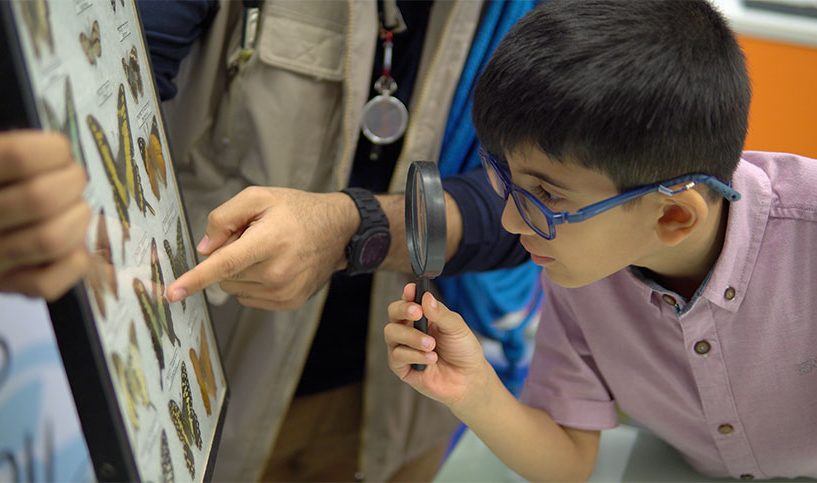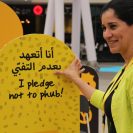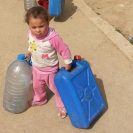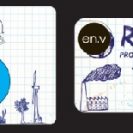“Camp” is not just for [Anna] Wintour, in fact, it’s best in the summer and The Scientific Center Kuwait is offering eight weeks of education and entertainment in a fun learning space for children who are aged 4 – 12 years old.
Imagine less “MET Gala in May” and more a gale of environmental information on a meteoric scale throughout June and July.
Through a series of eight weekly courses running from June 16 – August 8, inquisitive young campers will discover a wealth of knowledge on the fascinating world of Natural History.
A spokesperson for The Scientific Center of Kuwait (TSCK) advises that the courses have been written, “in an effort to foster a love for the environment and concern for the conservation of its resources.”
One well thought out aspect to these eight, week-long camps, is that while attending for the full two months would undoubtedly be an incredibly full educational experience, the program has been cleverly written so that each week works as a single summer camp module by itself.
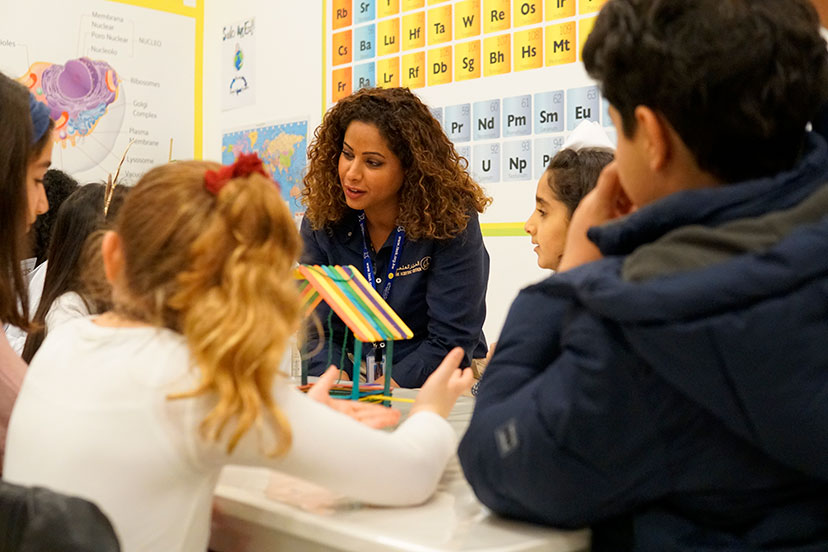
Kids can attend a camp without having taken part in the previous weeks’ camps and still get just as much out of the five days long schedule.
This means your child can attend one, or as many as you’d like, at any point during the summer program and attain the same level of understanding and enjoyment.
There are three age groups for the camps; 4 – 6 years, 7 – 8 years and 10 – 12 years, and each group has their own “Explainer” with two assistant explainers and also volunteers who help to run the program daily.
Each of the weekly camp’s age groups will experience the same topics and themes but will be taught at different levels according to their age-appropriate abilities.
What is admirable about these camps is the way that the experience has been designed to be delivered. There is an excellent staff to camper ratio when you consider the number of people on hand to help the cohort of up to 24 participants in each group.
This means that as well as the material, which is engaging for all children, and delivered considering a number of pedagogies, parents can be confident in the quality ancillary support too. Because of this, the attendance of those children living with autism who are able to enjoy a level of demanding play-to-learn environments is also encouraged.
A camp day starts at 9 am in Discovery Place which can be considered the “home room” for this first half an hour. Here attendance is taken and the groups readied for the busy day ahead. After home room, there is a quick physical warm-up to get the blood flowing, synapses firing on all cylinders, and the kids excited for the next sixty minutes of science class. No matter how much fun, learning can take a lot out of a child, so there is a designated snack break during which they can top up their energy.
Even the break times during the camp sessions serve a purpose, as www.livescience.com reports that children aged 8 – 9 years old who experience at least fifteen minutes of recess during the day perform better during academic time. During this daily camp break, the campers can watch an educational video so they are constantly able to receive some kind of educationally stimulating environment.
The kids are also allowed to nibble on snacks later during ‘creativity time’, which is where they will explore either visual, performing or language arts.
Campers can get to know their fellow attendees while enjoying lunch. Parents or caregivers should provide a packed lunch, making sure the fare is nut-free, healthy and nutritious. Kuwait is full of people from varied backgrounds and articles on www.psychology.com state that being exposed to a diverse group of peers when younger can improve confidence, social skills, and openness to new ideas.
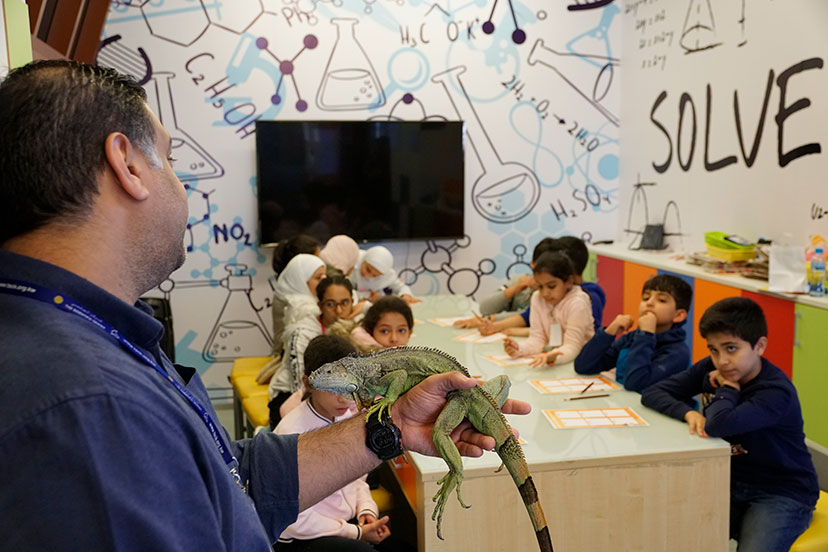
So, as well as learning all about science, attending these summer camps improves the abilities of your child in the area of interpersonal communication, producing empathetic well-rounded individuals.
Generation Z will be the ones who are left to deal with the residual effects of how the baby boomers and Gen X-ers have treated our planet. The Scientific Center of Kuwait is concerned about the development and future of Kuwait’s environmental sustainability, as we saw with the astounding Re-Use exhibition. Through children learning about botany, the animal kingdom, geography and climate at an early age they can relate to and identify with their global and local environments.
A 2015 article on www.fortune.com utilized marketing data which suggested that while Gen X could be scared into changing their behaviour, Gen Z is more likely to change behaviour if they can feel like they are part of being the solution, not the cause of the problem, “…offer them the opportunity to be part of a generation that could do something amazing: they could end [insert problem here].” Climate change? Limited energy resources? Perhaps these children will advance solar powered, hydroponic vertical farming and end world starvation?
The Scientific Center of Kuwait is of course not offering these solutions outright, but wouldn’t it be fantastic that through exploring Natural History and the world around them, if children could continue the conversations started right here at The Scientific Center of Kuwait summer camps? Encourage your children to engage with the world around them and sign up today for a fun summer, and for a brighter future.
The TSCK Summer camps run from Sunday – Thursday 9 AM – 1.30 PM from June 16 – August 8, 2019. The Scientific Center of Kuwait is located on Gulf Road, Salmiya, block one.
Follow their Instagram account @scicenterkw for more details on how to sign up and visit the website www.tsck.org.kw for more information on The Scientific Center of Kuwait, Discovery Place, Aquarium, Imax and other activities. Pictures courtesy of The Scientific Center of Kuwait.



